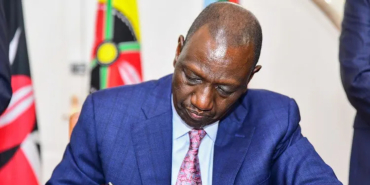Kenyan Firms Struggle with Expensive Loans and Limited Capital Access

Businesses in Kenya are facing rising borrowing costs, driven by higher interest rates, limited access to capital, and increased competition for domestic funds.
A new report by Moody’s Ratings highlights worsening credit conditions in several African economies, with Kenya, Nigeria, and South Africa among the most affected. The report attributes the increase in lending rates to structural and policy factors, particularly the Kenyan government’s reliance on domestic borrowing.
By competing with the private sector for local funds, the government has contributed to higher interest rates, making it harder for businesses, especially small and medium-sized enterprises, to access affordable credit. Lucie Villa, Senior Vice President at Moody’s, noted that borrowing costs have risen across banks, corporates, and governments in all three countries.
The report also links these challenges to broader macroeconomic instability and regulatory uncertainty, which continue to weigh on investor confidence. Kenya’s underdeveloped capital markets further limit financing options for businesses. With few alternatives to traditional bank lending, many enterprises face high costs or are excluded from credit altogether.
This lack of access hampers business growth and weakens the country’s broader economic resilience. While concessional loans from development partners have helped ease pressure on Kenya’s external debt, Moody’s warns that they have not been enough to offset high interest rates in domestic and global markets. Although international financing conditions have slightly improved since 2022, Kenya’s sovereign debt still trades at a spread of about 500 basis points above US Treasury bonds.
To address fiscal shortfalls, the National Treasury plans to raise Ksh149 billion through the privatisation of state-owned enterprises as part of its 2025–2026 Annual Borrowing Plan. The funds will contribute to a broader Ksh613.5 billion domestic financing target. However, details about which assets will be sold have not yet been disclosed.
Moody’s emphasises that lasting solutions to Kenya’s credit challenges will require structural reforms. These include improvements in economic governance, financial regulation, and broader access to credit.








Add new comment